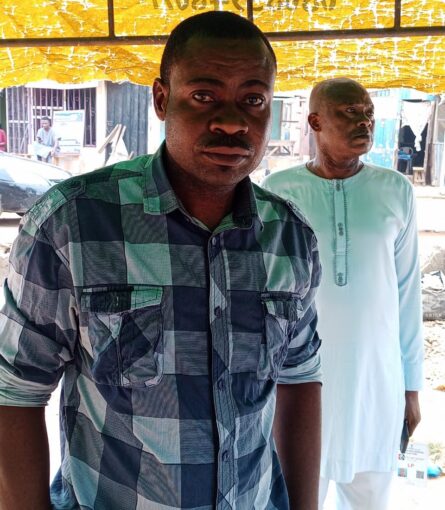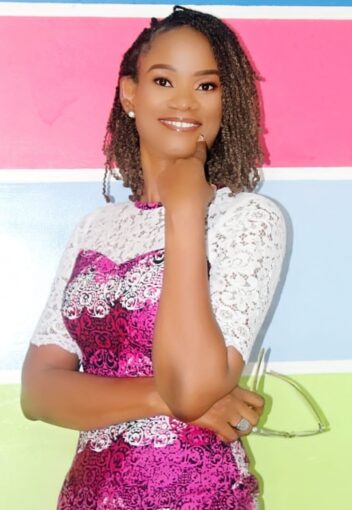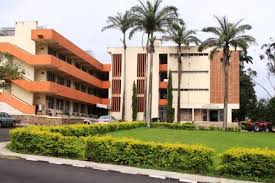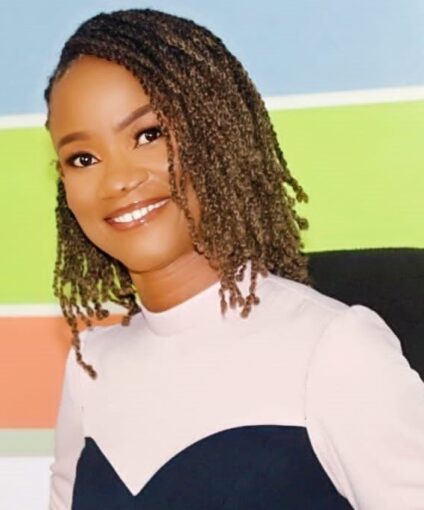Nigeria’s hidden curriculum and the values it carries
A Nigerian educator weighs in on the 2023 Nigerian presidential election
BY AMARA CHIDINMA EZEDINIRU
Many years ago, during my post-graduate studies in education, I came across the phrase “hidden curriculum.” I got intrigued listening to the professor who tore it in bits for my easy digestion.
A hidden curriculum refers to the unwritten, unofficial, and often unintended lessons, values, and behaviours that students learn in school beyond the explicit curriculum. These may include the social and cultural norms, attitudes, beliefs, and behaviours that are transmitted through the school environment and interactions with teachers and peers.

Thinking about the process that bestowed the title of President-elect on Nigeria’s Asiwaju Bola Ahmed Tinubu, I could not help but question our values as a people.
As I pondered, I wondered what Nigeria’s hidden curriculum is.
What do Nigerians covertly learn upon finishing any level of education? What do the teachers inadvertently hand over to learners that will ultimately be useful for nation-building?
While the explicit curriculum focuses on academic subjects and learning objectives, the hidden curriculum can play a significant role in shaping students’ attitudes, values, and behaviours, and can have a lasting impact on their lives.
What would have given the people the impetus to mutilate electoral documents and afterwards tender them for recognition? How could those documents be admitted as valid? Did we not learn anything about willful and unlawful concealing, removing, mutilating, obliterating, destroying or attempting to damage records? Did our hidden curriculum not detest this?
 I teach my students to cancel with a single line to keep their work neat. I discourage erasers so that they can trace their mistakes. Our education inspectors frown at errors in statutory documents. We learn to present documents clearly. We cascade this to our learners or so I suppose. What do other teachers teach? What is Nigeria’s position on this?
I teach my students to cancel with a single line to keep their work neat. I discourage erasers so that they can trace their mistakes. Our education inspectors frown at errors in statutory documents. We learn to present documents clearly. We cascade this to our learners or so I suppose. What do other teachers teach? What is Nigeria’s position on this?
One aspect of the hidden curriculum in Nigeria is the emphasis on conformity to authority and respect for elders. Students are often taught to obey authority figures without question and to show deference and respect to older people. Perhaps, this is the reason those in authority bask in wrongdoing because we have been conditioned not to question them. As much as this reinforces certain disempowering traditional cultural values, it tends to discourage critical thinking and independence. Perhaps this is why Nigeria, with all her abundance, lies fallow.
It feels to me that our hidden curriculum emphasizes competition and achievement over collaboration and creativity. Students are often encouraged to compete with one another for grades, awards, and recognition, rather than working together to achieve common goals. We see the ‘fight-to-finish’ spirit that we take with us in everything. We fight really dirty. We unearth everything and unleash the beast in us and the people around us, else what is the use of thugs and guns in an election? Is election no longer a democratic process? A country willing to advance ought to create a culture of teamwork and cooperation and de-emphasize individualism. Cooperation and teamwork will ensure a free and fair process.
I would have touched on the gender roles and stereotypes that are also often reinforced through our hidden curriculum; boys are encouraged to be more aggressive and dominant, while girls are encouraged to be passive and nurturing. However, let me pass on this as it barely surfaced in my thoughts. I recognize that many women are yet to embrace the fact that they can participate in elections. I was extremely happy to learn that a woman unseated the longest-serving senator in the federal capital.
Nigeria has found ways to enthrone cultural and societal biases and prejudices in her citizens. Students learn to view certain groups of people as inferior or superior based on their ethnicity, religion, or social class. They learn to be territorial, defending their regions instead of the nation. You hear sentences like ‘I am Yoruba’ instead of ‘I am Nigerian.’ Social status comes before intelligence. Students learn very early that who they know is more important than what they can do. More attention is thus paid to building a network with sycophants. Somewhere in our unconscious biases, we know that going to school in Nigeria is another way to pass time.
I asked myself if we are educated as a people.
Nigeria has made significant progress in increasing access to education over the years, particularly in primary education. According to the United Nations, the literacy rate in Nigeria is around 62% for adults over 15 years old, and around 50% for women. However, despite these gains, Nigeria still faces significant challenges in education, particularly in quality and equity.

Even with our significant progress, what is the quality of the education we give judging by the behaviour seen in our society today? As a teacher, I know that with every knowledge comes skills which ultimately affect attitude. Perhaps, the dire lack of qualified teachers, resources, and infrastructure has left us scampering in all areas. A Nigerian student at whatever level is hardly comparable to her international counterpart in critical thinking and problem-solving. We are always in a hurry to nowhere.
Furthermore, there are concerns about the relevance of the educational system to the needs of the economy and society. Many graduates struggle to find employment in their fields of study, and there are calls for greater emphasis on vocational and technical education to better prepare students for the workforce. It feels like we are not interested in using education for national development. We prefer to flaunt our academic titles and certificates instead of putting our trained intellect to work.
In my mind, an educated citizen is a person who has acquired a broad range of knowledge and skills through formal education, as well as through informal learning and life experiences. An educated citizen is not only knowledgeable in academic subjects, but also has developed critical thinking, problem-solving, and communication skills, and is able to apply this knowledge and skills to his/her daily lives and to society as a whole. An educated citizen understands and respects the values of his/her community and society, including democracy, justice, equality, and human rights. He has a strong sense of civic responsibility and actively participates in his community, whether through volunteering, voting, or advocating for social and environmental causes. An educated citizen is also culturally aware and respectful of diversity. He appreciates the differences in beliefs, values, and perspectives among people, and is able to communicate and collaborate effectively with people from different backgrounds.
Looking at my dear Nigeria today, especially with the February 25, 2023 election, I feel embarrassed and heartbroken. We have all the resources it takes to do far better than we did. I hold our hidden curriculum responsible for the avoidable quantum failure of our electoral process.
I recommend an urgent intervention in our education to reflect our core values as a nation. Do we even have core values? It is important for educators and policymakers to recognize and address the hidden curriculum, in order to promote a more inclusive, equitable, and progressive society.
___________
About the author

A distinguished teacher, an author of award-winning books, a neuro-linguistic programming coach, human resource generalist, business administrator, management consultant and an articulate public speaker, Amara’s background in marketing, education and management makes her outstanding in the delivery of overall business services for optimal productivity. When she is not in the boardroom, she’s in the classroom or in her writing room.

